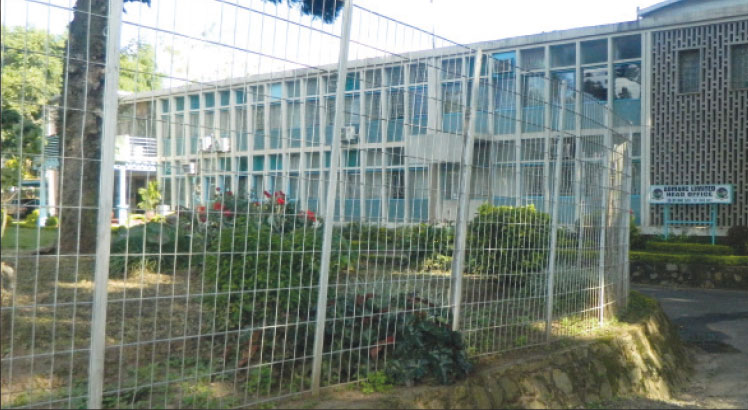State firms payments to govt to fall 90%
State-owned enterprises’ (SOEs) dividend payments to government are projected to decline to K15 billion in the 2024/25 financial year as prospects depict significant losses and deficits among commercial SOEs.
The projection represents an 89 percent decline in dividend payments from the K141 billion that Treasury collected in the 2023/24 financial year.
However, the K141 billion collection is four times higher than what was collected the year before (K32.7 billion).
Ironically, SOEs continue to play a significant role in the economy as they provide goods and services that cannot be efficiently and effectively provided by either the main line civil service or the private sector.
Treasury data shows that SOEs’ assets constituted 45 percent of the gross domestic product (GDP) while revenues and liabilities constitute 23 percent and 31 percent of GDP respectively.

An economic governance commentator, who spoke oncondition of anonymity, observed that government needed to unbundle the SOEs and obtain financial statistics for each company.
“Each of the SOEs has own environment affecting it and so is the market they operate in. We need to look at governance structures of each entity and performance history,” said the analyst.
On her part, Economists Association of Malawi acting president Bertha Bangara-Chikadza observed that the trends reflect the challenging economic conditions in which the SOEs are operating.
She said: “Specifically, most commercial SOEs depend on borrowing to finance their operations.
“These obligations, when coupled with unreflective cost structure exacerbate the financial position of SOEs.”
She pointed out that the observed trend of SOEs remitting lower than the approved dividends is likely to have negative implications on the budget implementation, which could force Treasury to find alternative funding sources for planned expenditures.
She said: “Those that do not meet targets to remit dividends need to be capitated financially. It is worth noting that reforms are a gradual process; hence, we need to consider that results of the current reforms agenda may materialise with a time lag.”
Scotland -based economist Velli Nyirongo said the significant reduction implies that such high collections may not be sustainable in the long-run with lower dividend collections resulting in budget deficits, as the government depends on these dividends to finance public services.
He said: “A notable decline might necessitate spending cuts or increased borrowing.
“Several factors might be contributing to the underperformance of SOEs despite government reforms, including corruption, lack of competition, political Interference and underinvestment.”
Weekend Nation analysis based on Treasury data shows that in the past five years, (2018/19 to 2022/23), out of a projected K164 billion, the parastatals only remitted K82.2 billion.
This means SOEs missed their targets by K81 billion.
Over the same period, the government disbursed payouts to several companies including utility service providers Electricity Supply Corporation of Malawi (Escom) and the water boards which have been operating at a loss despite operating in market environments where they are monopolies.
In 2020, for instance, three companies—the Agricultural Development and Marketing Corporation (Admarc), Southern Region Water Board and Malawi Broadcasting Corporation received payouts from the government.
In the previous year, the government disbursed bailouts to four other trading companies—Blantyre Water Board, Northern Region Water Board and Admarc.
The failure of the SOEs to remit dividends, coupled with their continuous need for government bailouts prompted concerns from both local analysts and multilateral institutions such as the International Monetary Fund and the World Bank.
Comptroller of Statutory Corporations Peter Simbani is on record as having told the Parliamentary Committee on Government Assurance and Public Sector Reforms Programme that utility firms were operating at a loss and struggling to remit dividends to the government because they are owed billions of kwacha in unpaid bills.
The Malawi Government Annual Economic Report 2024 shows that high cost of borrowing, inter-agency arrears and tariffs that do not reflect the costs of production continue to weigh in on the performance of the SOEs.
Meanwhile, Ministry of Finance and Economic Affairs has attributed the poor performance of some SOEs to their failure to “generate adequate revenues to meet their operating expenditure largely due to non-cost reflective tariffs and the impact of the exchange rate re-alignment in November 2023”.





